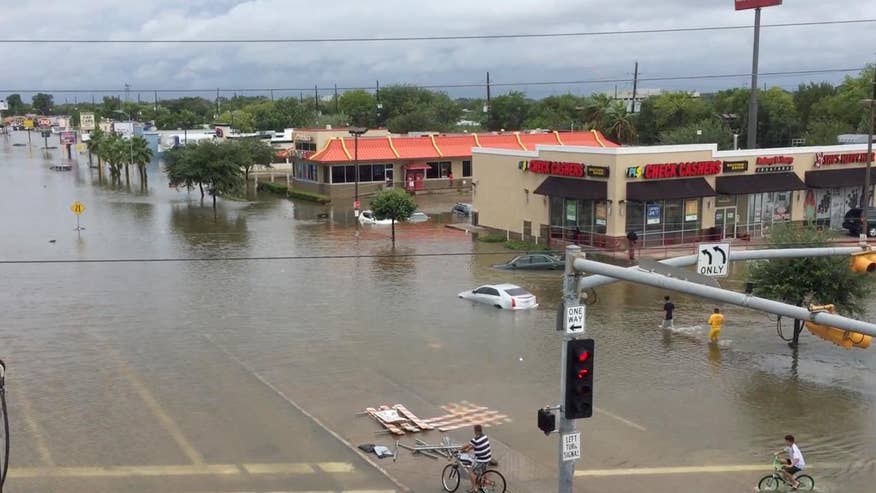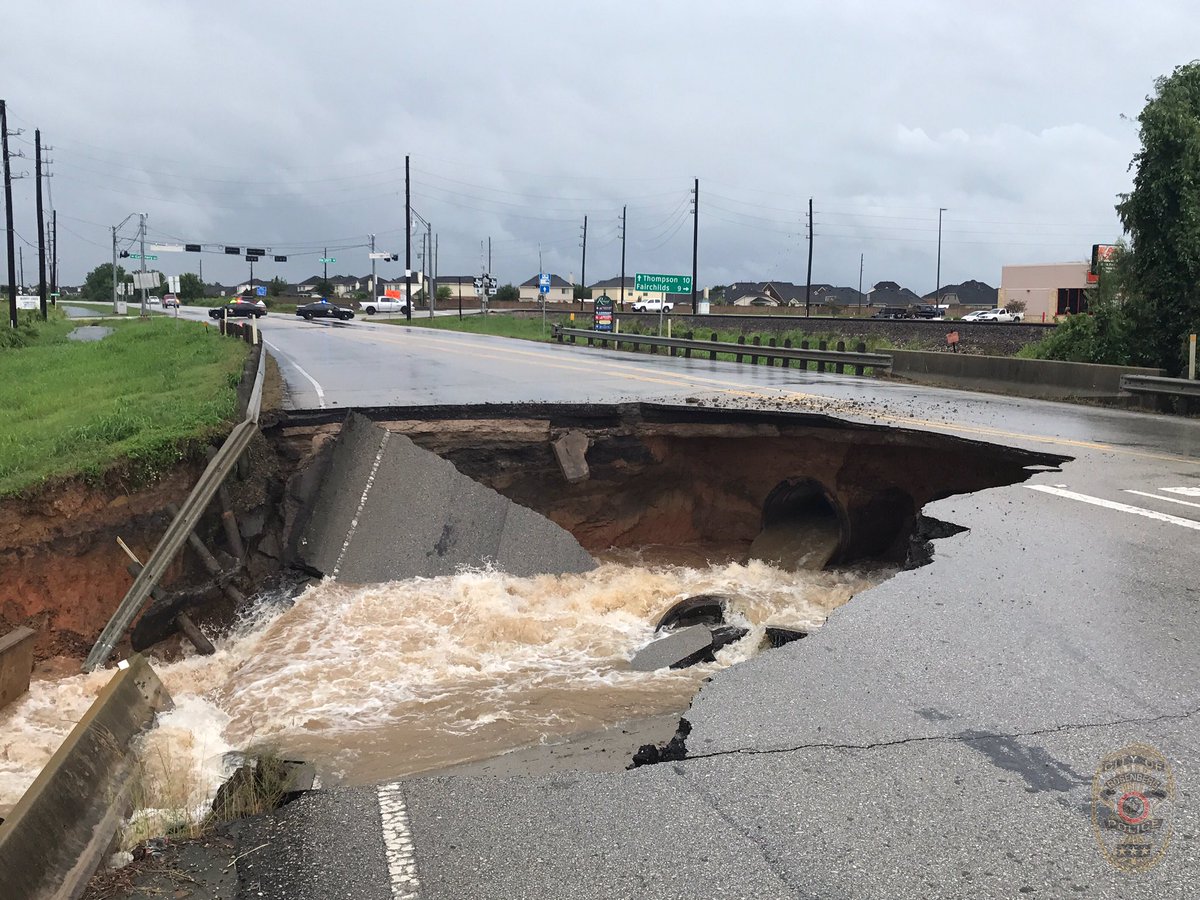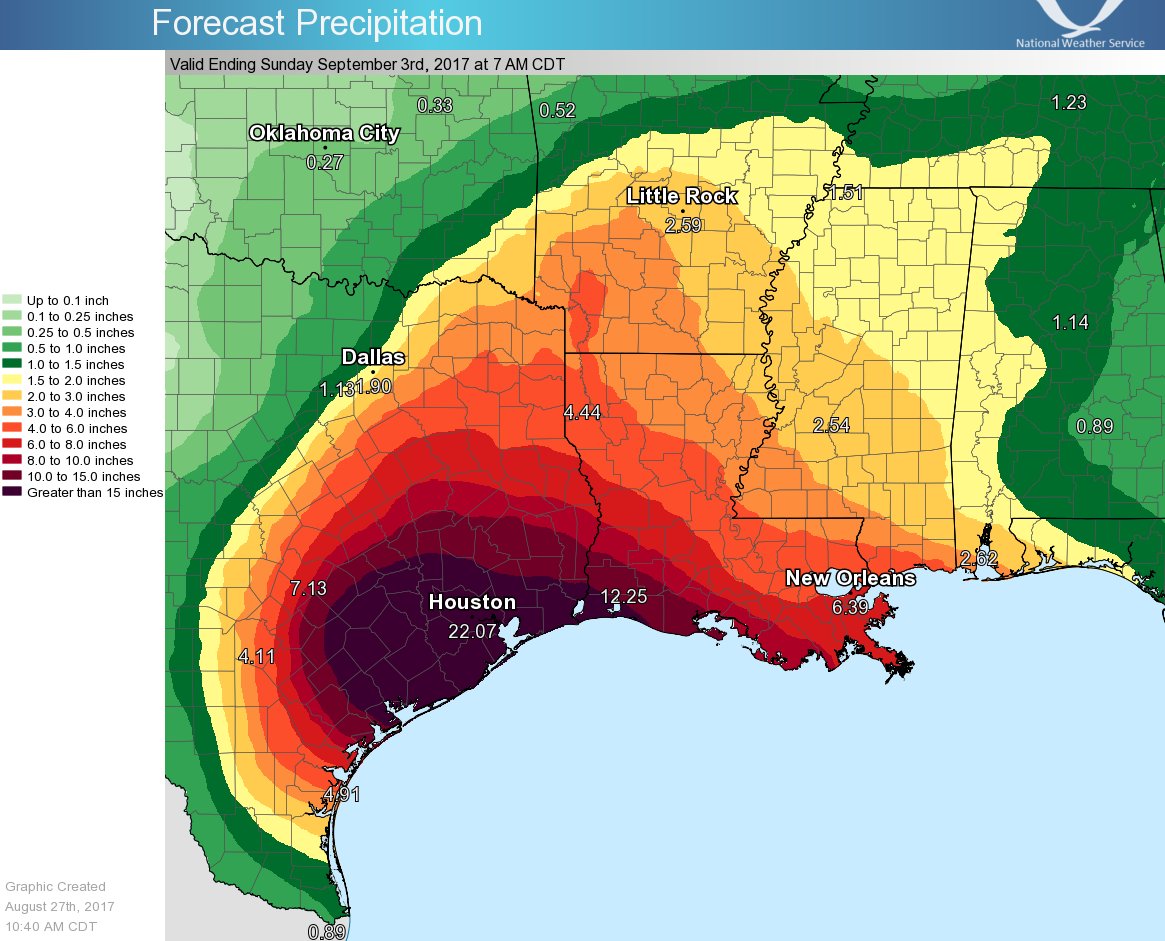Business As Usual
"There could have been ways to have more green space and more green infrastructure over the years, and it just didn't work that way, because it was fast and furious."
"It's been known for years how to do it. It just costs the developers more money to do it that way."
"And so the building just went rampant, and there weren't many controls. It was like the Wild West, and you just built housing subdivision after housing subdivision up close to the bayous, up close to the channels."
Dr. Phil Bedient, professor of Engineering in Civil and Environmental Engineering , Rice University, Houston
"If you put the kind of super-strict planning shackles on Houston, that would be the way to kill it."
"Why would you live in a hot, humid, flat space if it was expensive?"
Joel Kotkin, urban theorist
"Houston will accept anybody who's got hustle -- it respects energy more than any place."
"Houston is a very resilient city, and it will overcome."
Larry McMurtry, Texas writer
 |
| Bright Cove, Houston, Foxnews.com |
In other words, it will be business as usual for Houston now that the inconvenience of a massive flooding event thanks to a one-in-a-500-years hurricane has come and passed. Of course, equally inconvenient is the fact that environmentalists warn that these unique and deadly hurricanes are on track to become more common, more numerous, and places like Houston that faced up to nature's wrath, with most of its natural surroundings devised by nature to protect the geography from flooding have been severely compromised by gung-ho building.
The city itself was the brainchild of speculators in real estate from New York. And since Houston was chosen as a site for a city that would evolve to an energy powerhouse in the 1830s, homes and businesses have routinely flooded. Attempts to drain the swampy land failed to protect its residents, the floods just kept coming in, one after another. In Houston's first one hundred years of existence it has coped with no fewer than 16 major floods. But none of that kept Houston from becoming a flourishing metropolis, the centre of the petroleum industry in the United States.
It was from Houston that the U.S. Space Agency first sent humankind to visit the moon. It is where the world's largest medical center has been established. No fewer than 145 languages are spoken in the city, as a teeming melting pot model of humanity on display, live and energetic and bursting with pride. Of course on the way to achieving all of this, as the city's population grew so did its need to push nature around, to claim for human habitation and corporate business areas intended by nature to absorb extravagant amounts of water from storms to protect the mainland.
Without the municipal authority agreeing that there was no need to regulate the environment, much less to place restraints through onerous building code regulations that would slow down industry, development and the growing population base requiring places to live, the result has been that it isn't dreadfully expensive to afford a house in Houston. Because homes were developed on the cheap, on the very wetlands and prairies that were meant to remain as the natural sponges nature had intended them to be.
The irony cannot be escaped that it is the industry that made Houston the power house it is, that has been identified as the major contributor to the pollution that threatens to incite those overwhelmingly dangerous storms. Houston itself is the unlikeliest of natural environments to host a growing mega-city of aggressive enterprise. Throughout its inner geography it is burdened with the presence of slow-moving bayous where clay soils fail to absorb excess water. During Hurricane Harvey close to 1,400 millimeters of rain fell; while the average annual rainfall in Houston registers about 1,200 millimeters.
 |
| Rosenberg Police Department -- Twitter |
The city had decided it would control stormwater by directing the runoff to the Gulf of Mexico, and to that end two key bayous were channeled by conversion to concrete culverts, and a third one widened. Houston must have felt it had accomplished its due diligence in a massive engineering network of 1,400 channels totalling 4,000 kilometers, built for storm runoff to be directed out of the city and funnelled down to the sea. Thus assured, city planners felt free to allow building to run rampant.
Then came the realization that such large rainfalls couldn't, after all, be handled by the system devised, since green space that might have absorbed all that extra water falling during a big storm had been paved with parking lots, houses, churches and malls. An initiative undertaken in 2010 to improve roads and renew the drainage system represented a major financing effort necessitating new taxes. Raising taxes is singularly unpopular anywhere, particularly when it is paired with a recommendation that homeowners living in flood plains return the land to green space through government buy-outs.
The result of which, concerns many planners; that with stricter regulations on building codes the momentum that has always inspired Houston to grow as it wished, and unregulated, will result in houses no longer being as affordable, and thus attractive to lure people to live and work in Houston, in its signature industry.

Labels: Environment, Houston, Nature, Storms, Weather

0 Comments:
Post a Comment
<< Home